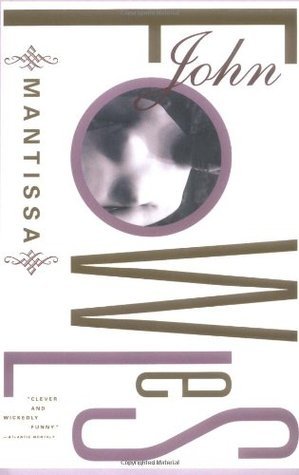
Mantissa
Book Description
Trapped in a surreal literary limbo, a strange dialogue unfolds between a dying author and the enigmatic figures haunting his mind. Each revelation layers the tension, as existential dread intertwines with the fervent quest for creative freedom. As the author's reality blurs with his fantasies, love, ambition, and the struggle for authenticity pulse at the heart of this gripping tale. Will he conquer the demons of doubt and reclaim his voice, or will he be forever ensnared in the shadows of his own imagination? Dive into a world where words are both a weapon and a sanctuary—what will be unleashed when the final page turns?
Quick Book Summary
Mantissa by John Fowles is a metafictional novel that thrusts readers into the mind of Miles Green, a celebrated writer who finds himself in a bewildering hospital room, beset by amnesia and uncertainty. There, he encounters Erato, the personification of the muse of literature, engaging in a sharp, surreal battle of wits about creativity, gender roles, and the very nature of storytelling. The lines between reality and imagination blur as Miles and Erato test each other's limits, exploring the complex interplay between an author's ambitions, self-doubt, and reliance on inspiration. Through their provocative and often humorous exchanges, Fowles exposes the inner turmoil of the creative process and the existential dilemma faced by artists. Ultimately, Mantissa is an inventive meditation on the writer's struggle for authenticity amid the seductive illusions of the literary imagination.
Summary of Key Ideas
Table of Contents
The Relationship Between Creator and Muse
Miles Green, a successful novelist, awakens in a sterile hospital room devoid of memory or identity. Disoriented, he confronts a mysterious woman, who initially presents herself as a doctor but quickly transforms into Erato—the muse of lyric poetry. Their interaction rapidly sheds the trappings of ordinary reality, propelling Miles into a surreal debate about authorship, inspiration, and his own sanity. The hospital room becomes a symbolic stage, where the fragile barrier between fiction and real life begins to crumble.
The Blurred Boundaries of Reality and Fiction
As Erato subjects Miles to verbal sparring, she exposes his insecurities and self-delusions as a writer. The dynamic between them is charged with wit, hostility, and erotic tension, reflecting not only the frustration inherent in the creative process but also the shifting power balance between male author and female muse. Erato mocks the clichéd expectations imposed upon her by generations of male writers while Miles oscillates between arrogance, vulnerability, and desperation to regain his creative sovereignty.
The Search for Authentic Creative Voice
Throughout their exchange, Mantissa delves into the existential challenges faced by artists: doubt, the search for meaning, and the struggle to assert authenticity in a world saturated with literary conventions. The characters’ debates spiral into philosophical territory, questioning whether true inspiration ever comes from outside the self or if it is manufactured by the imagination. The narrative’s self-referential structure pokes fun at literary traditions while simultaneously exploring their enduring grip on writers and readers alike.
Feminism and Gender Dynamics in Art
Feminist critique permeates the novel, as Fowles interrogates the traditional gender dynamics of literature. Erato refuses to be objectified or reduced to a mere instrument of the male writer’s desire, insisting on her agency and intellect. The friction between creator and muse becomes a metaphor for broader power struggles within art and society. In this charged space, love, sexuality, and artistic integrity clash with expectation and convention.
Existential Struggle within the Creative Process
By the novel’s end, the boundaries between Miles’s reality and hallucination are irretrievably blurred. Creativity proves both torment and salvation, with the muse’s provocations forcing Miles to confront uncomfortable truths about himself. Mantissa culminates in an uneasy truce—Miles is changed by his ordeal, compelled to re-evaluate the source of his art and the authenticity of his literary voice. The book ultimately asserts that the act of creation is an endless, fraught negotiation between self, inspiration, and the ghostly figures that inhabit every writer’s mind.
Download This Summary
Get a free PDF of this summary instantly — no email required.





